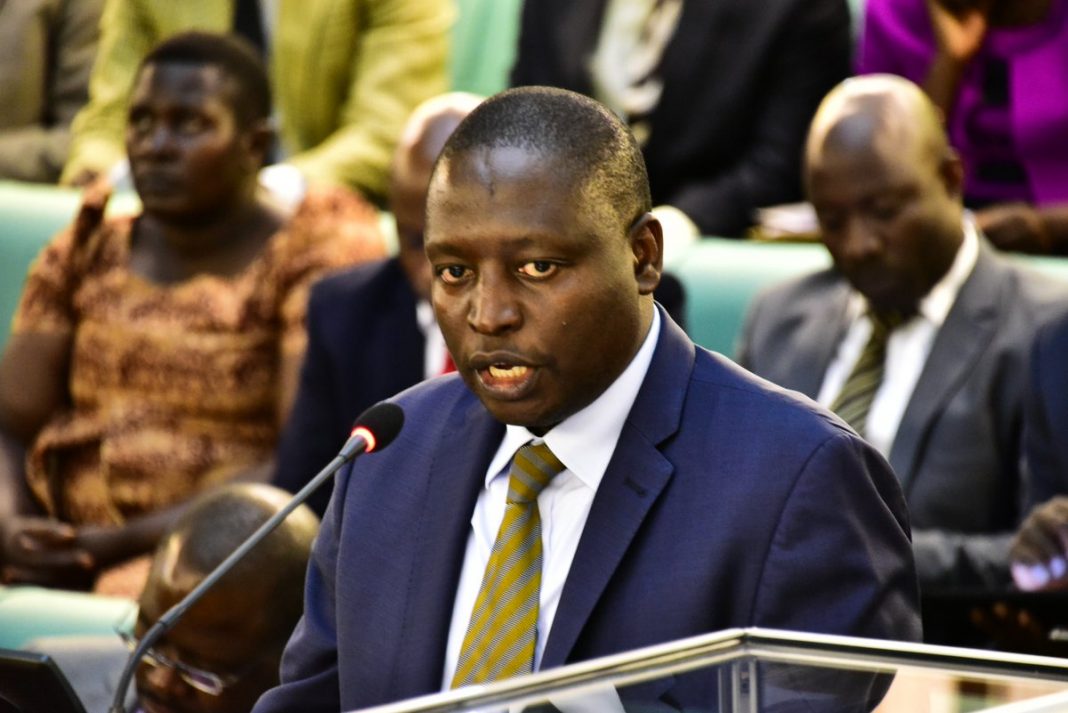Government wants to borrow Euros 600 million (about Shs2.4 trillion) from both Stanbic Bank and Trade Development Bank to finance the 2019/2020 budget deficit, state minister for finance, David Bahati says.
According to Bahati, Uganda’s national debt has hit a record high of Shs45.8 trillion.
As at end June 2019, total public debt amounted to US$12.43 billion equivalent to Shs45.825 trillion out of which external and domestic debt accounted for US$ 8.27 billion (66.6 percent) and USD4.16 billion (33.4) respectively.
The Minister further says that nominal Debt as a percentage of GDP stands at 35.9 percent using the rebased GDP of Shs128.49 Trillion for Fiscal year 20l8/2019.
He says that the impact of borrowing Euros 600 million on the debt position for financial year 2019/2020 will add about 2 percent to Debt to GDP ratio but maintained that despite the impending borrowing, Uganda’s debt levels will remain sustainable.
In June 2019, the Minister of Finance, Hon. Matia Kasaija, presented a Shs40.5 trillion budget for the financial year 2019/2020.
However, five months into the financial year, government has realised a low revenue performance, which is attributed to delays in implementation of some administrative measures which had been projected to generate revenues including: the Digital Tax Stamps (Shs150 billion), electronic fiscal devices (Shs170 billion), rental income tax (Shs 174.63 billion) and the MTN Uganda national operator license fees of US$100 million.
In order to implement the Budget for financial year 2019120 and meet the additional expenditure pressures, Government must borrow either domestically or externally to cover the budget deficit,” says Bahati.
He said that the Ministry received four offers from the market which included Trade and Development Bank (TDB), Stanbic Bank (U) Ltd, ABSA and Citi Bank, two of which offered the best terms.
The shortfall has also been caused by additional expenditure pressures; non-receipt of World Bank budget support funds; and non-receipt of capital gains tax totaling to Shs 2,473.55 billion
The Minister also says that the current financial year has additional expenditure pressures amounting to Shs1,432 billion intended for security or classified expenditure; wage shortfalls; counterpart funding obligations for projects; and emergencies.
Further, the Minister says that certain decisions of Parliament including the refusal of the proposal for accounting for rental tax, imposition of a minimum tax of 0.5 per cent on losses carried forward beyond seven years and the repeal of one per cent of withholding tax on agricultural supplies led to a Shs48 billion revenue shortfall.
He says that even after submitting a supplementary request of Shs437.6 billion to Parliament, the national budget has additional expenditure pressures amounting to Shs1, 432 billion intended to cover security and classified expenditure; wage shortfalls; counterpart funding obligations for projects; and emergencies.
According to the Report of Budget Committee on 2019/20 budget estimates, Uganda’s total public debt stock increased by 12.5 percent to US$11.52 billion (about Shs43.31 trillion) as at end December 2018 from USD10.24 billion (about Shs38.5 trillion) at end of December, 2017.








